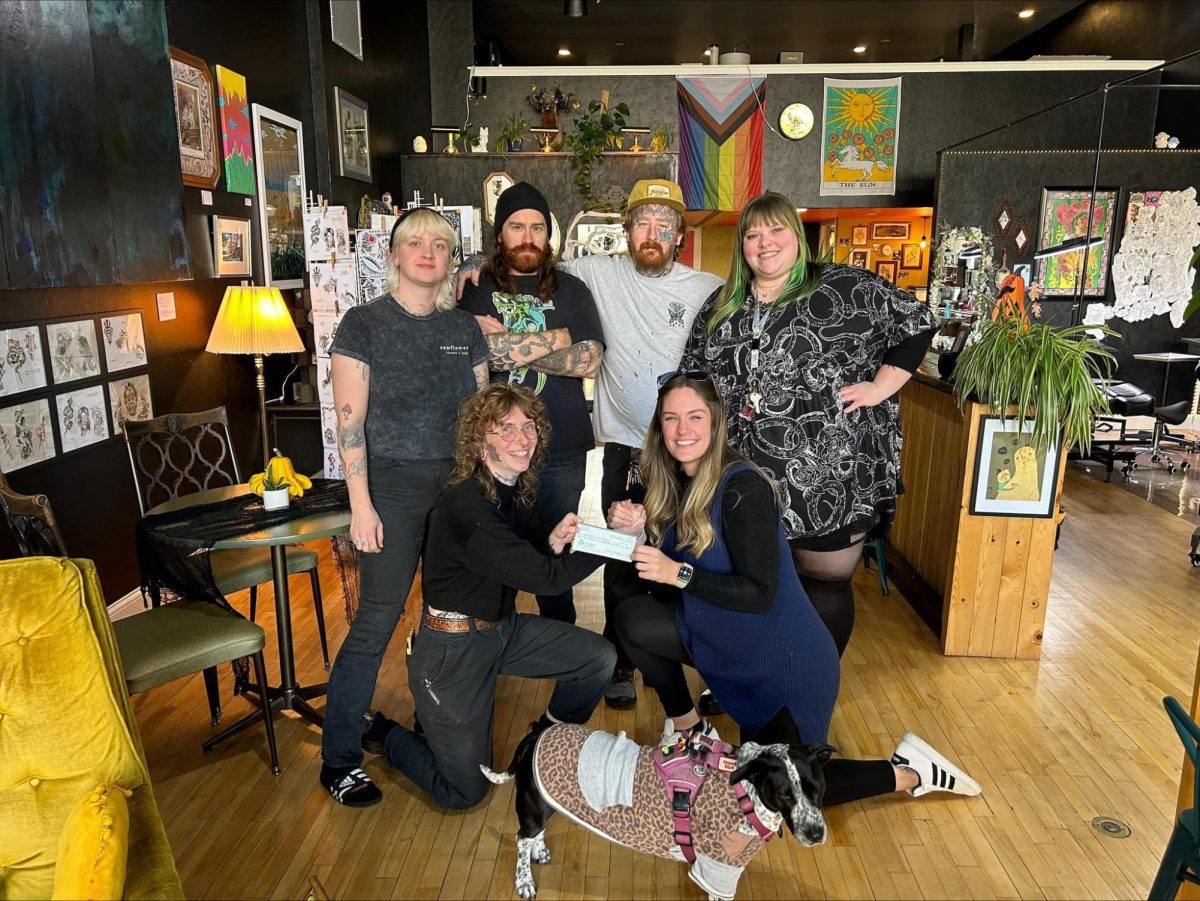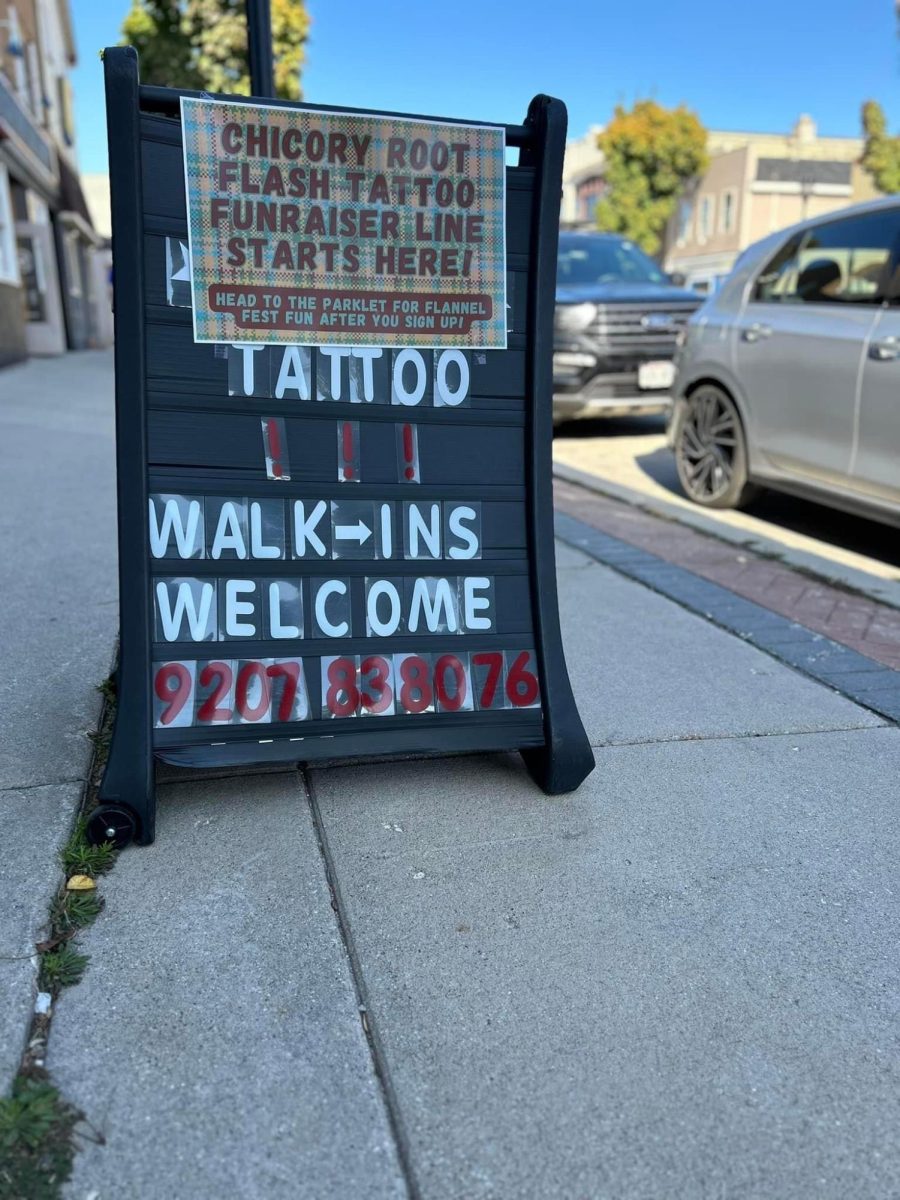Chicory Root Tattoo Studio recently partnered with Safe Harbor to host a successful flash tattoo event, raising an impressive $4,400 to support survivors of domestic violence. This event marked their first collaboration with Safe Harbor, aiming to bring attention to the ongoing issue of domestic violence in the community. Tattoo designs, priced at $100 cash, offered participants a choice of black and gray or up to two colors, depending on the artist’s style.
Domestic Violence Awareness Month (DVAM), which happens every October, is a time when we raise awareness about the serious issue of domestic violence, support survivors, and advocate for prevention. Domestic violence affects millions of individuals regardless of age, gender, or social status. The impact on survivors can be long-lasting. DVAM helps shed light on the people who are affected by this by promoting resources, information about DV, or even community support. It’s time for communities to come together to challenge harmful behaviors and support men and women who need help.
Misconceptions About Domestic Violence and Overlooked Signs
Several misconceptions about domestic violence continue to make it harder to recognize and address the issue:
- Misconception: Domestic violence is always physical. Many believe that domestic violence only involves physical harm, but emotional, psychological, financial, and sexual abuse are all forms of domestic violence. Abuse can also come out and controlling, isolation or even verbal attacks can leave mental scars.
- Misconception: It only happens in certain types of relationships or communities. Domestic violence crosses all boundaries: race, class, sexual orientation, and gender. There is no “typical” victim. This can happen to anyone no matter where they come from.
- Misconception: Victims can easily leave if they want to. Leaving an abusive relationship can be extremely complicated. When abuse happens frequently, fear can build up, and leaving the relationship isn’t an option. Concern for children or lack of support systems often makes it challenging for victims to leave.
Overlooked Signs:
- Excessive control over a partner’s finances, social interactions, or daily activities.
- Isolation from family and friends is often enforced by the abuser to prevent the victim from seeking help.
- Frequent justifications or excuses for a partner’s behavior, such as claiming the abuse is due to stress or alcohol.
- Drastic changes in personality or behavior, such as becoming more anxious, withdrawn, or fearful.
Domestic Violence Among College Students:
Domestic violence and intimate partner violence (IPV) sadly happens a lot among college students, which are often unreported. Studies indicate that approximately 43% of dating college women report experiencing violent or abusive dating behaviors, which include physical, emotional, or sexual abuse.
- Statistics: According to the National Coalition Against Domestic Violence (NCADV), nearly 1 in 3 college students experiences some form of intimate partner violence during their time on campus. It mostly happens in their first semester in college. About 70% of college students say they have been in a relationship that involves psychological or emotional abuse.
Challenges:
- Lack of awareness: Many students don’t realize that they are in abusive relationships because they downplay or normalize certain behaviors.
- Campus culture: There might be a tendency to minimize instances of abuse, particularly if the abuser is well-known or respected.
- Reluctance to report: Victims may feel embarrassed, scared, might be threatened, or might feel scared by authorities.
For those experiencing domestic violence, here are some resources that are available:
- National Domestic Violence Hotline: A 24/7 confidential hotline offering support, resources, and safety planning. Call 1-800-799-7233 or visit thehotline.org for chat options.
- RAINN (Rape, Abuse & Incest National Network): Is a resource and support for survivors of sexual violence. Visit rainn.org or call 1-800-656-HOPE.
- Safe Harbor of Sheboygan County: For those in Wisconsin, Safe Harbor provides emergency shelter, counseling, and legal advocacy for victims of domestic and sexual violence. They offer a 24/7 crisis hotline and other supportive services.
- Campus Resources: Most colleges and universities offer confidential counseling services, as well as resources through student affairs or campus safety offices. Many campuses also have Title IX coordinators to address cases of violence or discrimination. Contact Campus security or talk to an RA.
Domestic Violence Awareness Month serves as a crucial reminder to learn, act, and support those men or women who have been affected by abuse. We need to ensure that communities are informed, empathetic, and prepared to help those in need.



